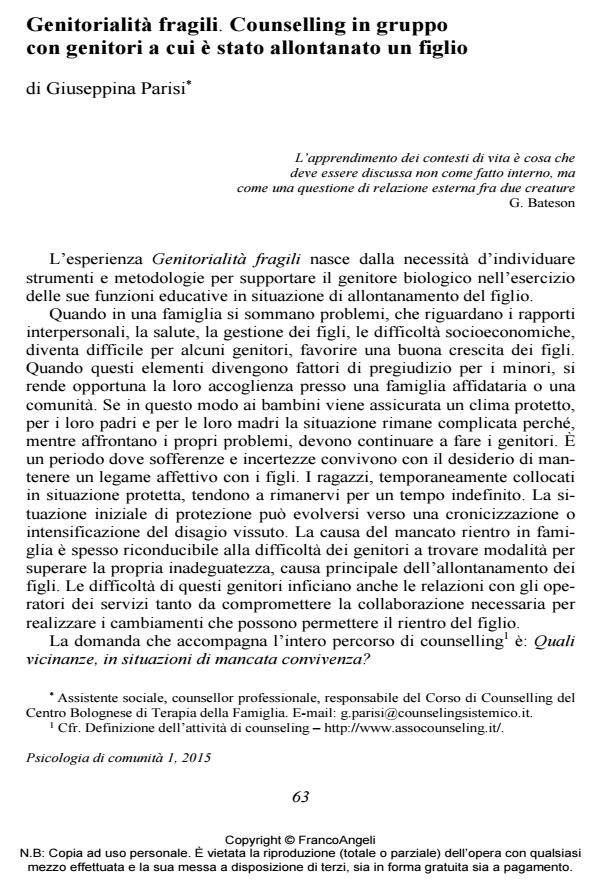Vulnerable Parenting Group counselling focused on parents of estranged children
Journal title PSICOLOGIA DI COMUNITA’
Author/s Giuseppina Parisi
Publishing Year 2015 Issue 2015/1
Language Italian Pages 10 P. 63-72 File size 50 KB
DOI 10.3280/PSC2015-001007
DOI is like a bar code for intellectual property: to have more infomation
click here
Below, you can see the article first page
If you want to buy this article in PDF format, you can do it, following the instructions to buy download credits

FrancoAngeli is member of Publishers International Linking Association, Inc (PILA), a not-for-profit association which run the CrossRef service enabling links to and from online scholarly content.
In the present paper, the author identifies tools and methodologies to support the biological parent in the exercise of his functions in the educational situation of child’s removal, favoring a path couselling group in the context of social services. It tells of the representation that fathers and mothers have of being a parent, and the possibility of setting up positive changes facing the fear of bankruptcies and judgments. Describes the crucial points of the intervention and the reflections resulting from experiences made in some Territorial Social Services.
Keywords: Group counselling, estranged children, parenting, evolutionary change, parental identity, genogram.
Giuseppina Parisi, Genitorialità fragili. Counselling in gruppo con genitori a cui è stato allontanato un figlio in "PSICOLOGIA DI COMUNITA’" 1/2015, pp 63-72, DOI: 10.3280/PSC2015-001007